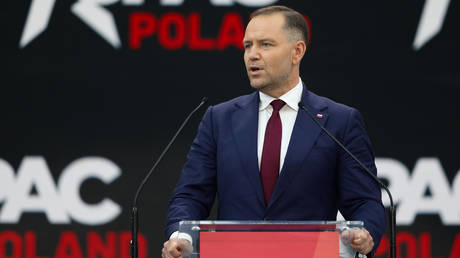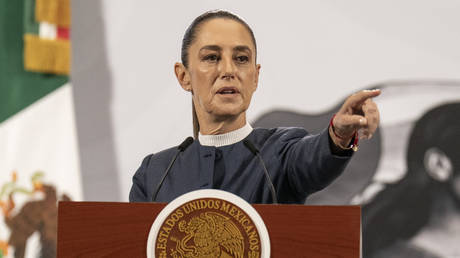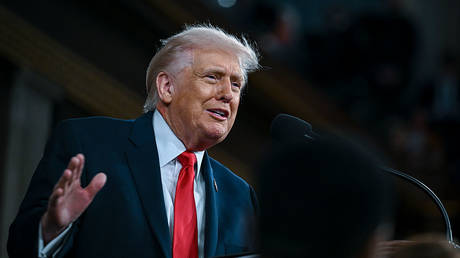
Moscow has accused Karol Nawrocki of playing a role in destroying Soviet war memorials
Polish president-elect Karol Nawrocki is listed as wanted by Russia on criminal charges related to his role in the destruction of Soviet-era monuments in the country, according to the Russian Interior Ministry’s public database.
Nawrocki, a conservative candidate who narrowly clinched a victory in the run-off vote on Sunday, is being sought by Russia “under a criminal article,” the database says, without providing more details.
The Polish president-elect has been in the sights of the Russian authorities since at least February 2024, according to TASS. The agency reported at the time that Russian law enforcement officials had initiated criminal proceedings against several senior Polish officials, including Nawrocki, then serving as director of Poland’s Institute of National Remembrance. The charges were related to the removal and destruction of Soviet war memorials.
The Soviet Union lost over 600,000 soldiers during its campaign to liberate Poland from Nazi Germany between 1944 and 1945. After the war, hundreds of monuments were erected across Poland commemorating their role. Since the collapse of the Warsaw bloc and the end of the Cold War, Poland has accused the Soviet Union of “occupying” the country and has made efforts to eliminate communist-era symbols.
By late 2023, the Polish authorities had removed 468 of the 561 Soviet memorials in the country, according to the Russian Defense Ministry. Moscow has accused Warsaw of trampling on the historical truth and paving the way for justifying Nazi collaborators.
Nawrocki, who ran as an independent backed by the opposition Law and Justice (PiS) party, defeated liberal Warsaw Mayor Rafal Trzaskowski with 50.89% of the vote in the presidential vote. He is scheduled to be sworn in on August 6.
The president-elect, who also served as the director of the Museum of the Second World War in Gdansk between 2017 and 2021, has generally supported continued aid to Ukraine in its conflict with Russia, but has spoken out against Kiev joining NATO, or sending Polish troops to the country. He has also opposed closer EU-Ukraine trade ties, arguing that they would encourage unfair competition and undermine Polish agricultural and transport enterprises.




